Joaquín Pinheiro, leader of the MST, Brazil: “We will continue fighting for land and for the Agrarian Reform”
“The Landless Movement (MST) of Brazil is accused of being a criminal organization. This 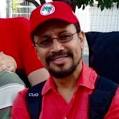 accusation is part of a strategy to criminalize social protest and popular movements. After weakening the Workers’ Party (PT) of Lula da Silva and Dilma Rousseff, who he overthrew, Temer now has it aim set on the MST. But we continue to struggle, because this is the only way to defeat the conservative forces and the coup”.
accusation is part of a strategy to criminalize social protest and popular movements. After weakening the Workers’ Party (PT) of Lula da Silva and Dilma Rousseff, who he overthrew, Temer now has it aim set on the MST. But we continue to struggle, because this is the only way to defeat the conservative forces and the coup”.

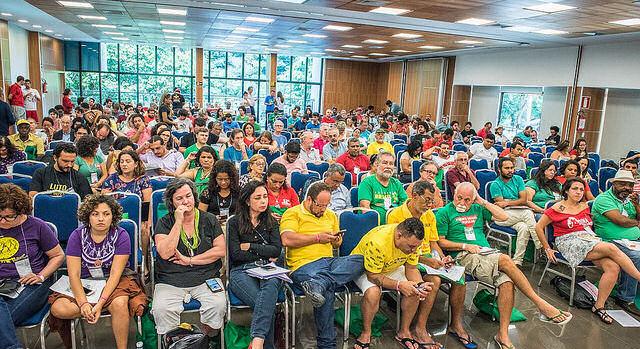
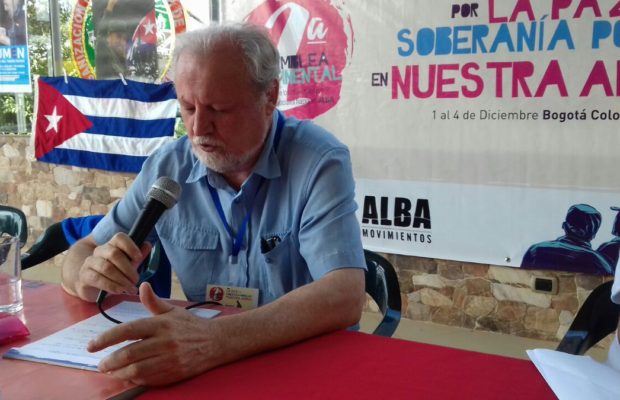 the ALBA, the first panel of speakers was led by the representative of the Landless Rural Workers’ Movement (MST) of Brazil, João Pedro Stedile, who offered a master class titled “Political juncture: neoliberalism, neodevelopmentalism and socialism in our continent”.
the ALBA, the first panel of speakers was led by the representative of the Landless Rural Workers’ Movement (MST) of Brazil, João Pedro Stedile, who offered a master class titled “Political juncture: neoliberalism, neodevelopmentalism and socialism in our continent”.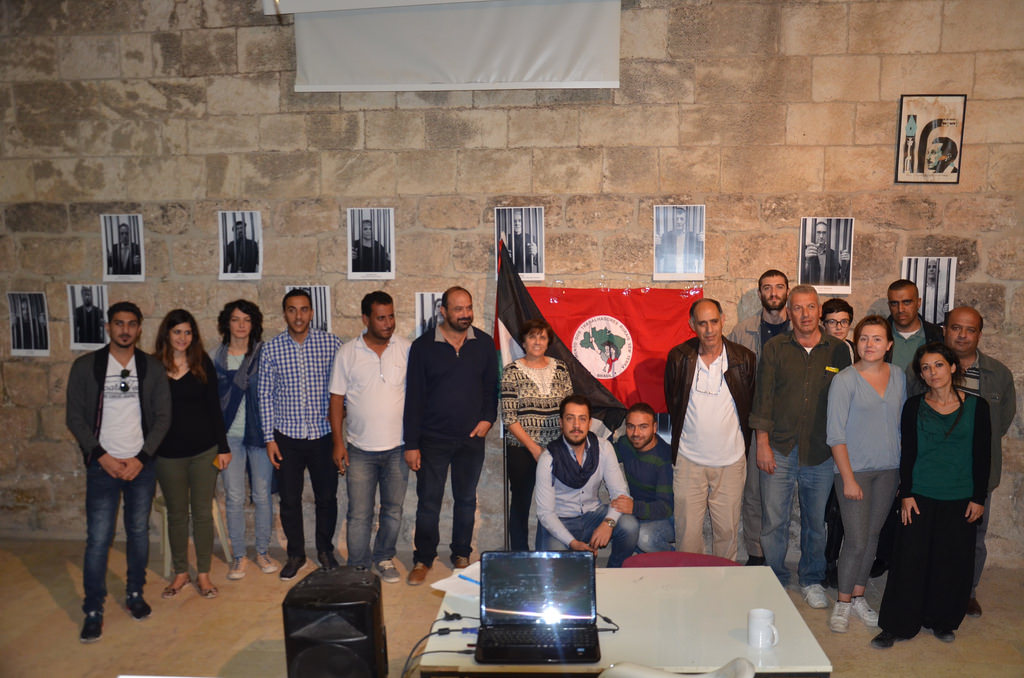 East gathered in an act of support and solidarity to the MST in Bethlehem, Palestine.
East gathered in an act of support and solidarity to the MST in Bethlehem, Palestine.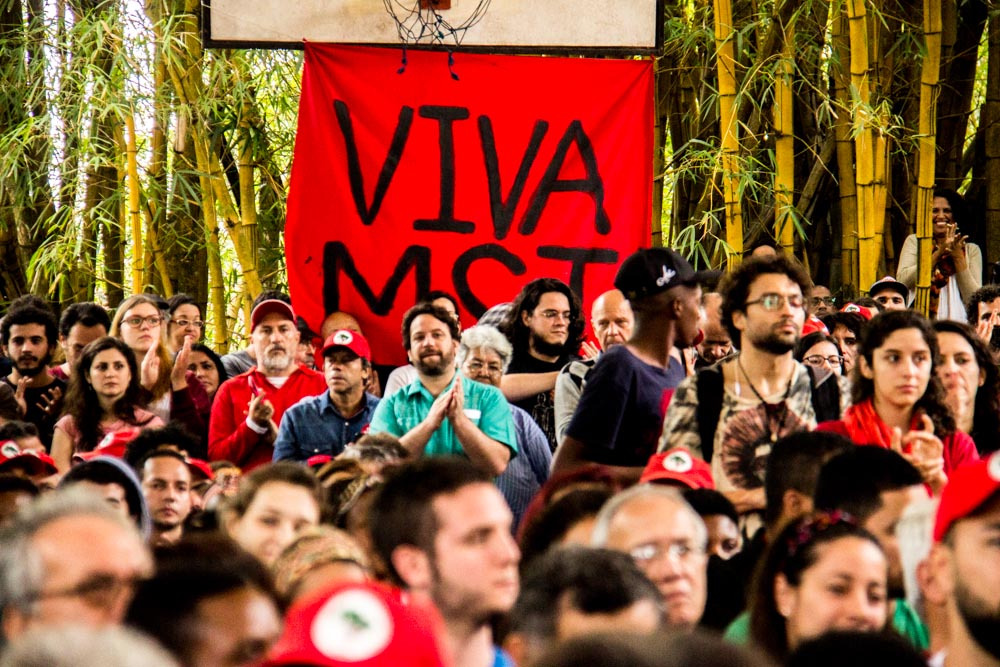 To denounce the criminalization of popular movements, around a thousand people gathered this Saturday, November 5, 2016 at the National School Florestan Fernandes (ENFF), in Guararema (SP), in solidarity with the Movement of Landless Rural Workers (MST). The act is a response to the truculent action of civilian police, who invaded the school, fired bullets at students and militants, and imprisoned two members of ENFF, on Friday, November 4, 2016.
To denounce the criminalization of popular movements, around a thousand people gathered this Saturday, November 5, 2016 at the National School Florestan Fernandes (ENFF), in Guararema (SP), in solidarity with the Movement of Landless Rural Workers (MST). The act is a response to the truculent action of civilian police, who invaded the school, fired bullets at students and militants, and imprisoned two members of ENFF, on Friday, November 4, 2016.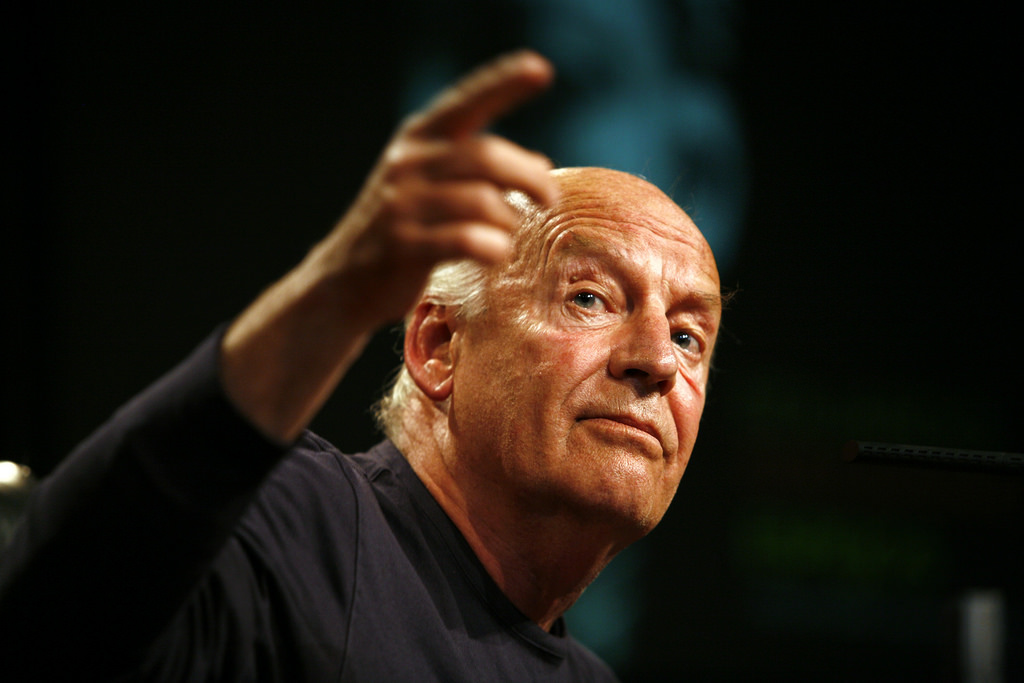 Montevideo, Latin America, (1940 -2015)
Montevideo, Latin America, (1940 -2015)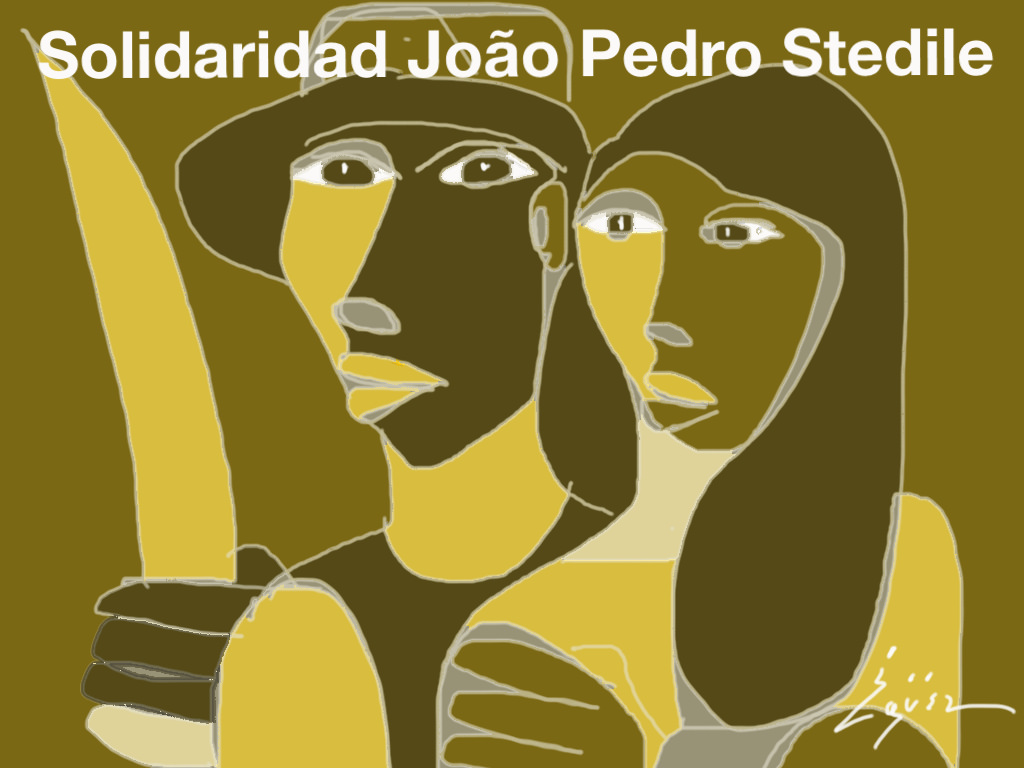 Groups and individuals showed their support and solidarity to João Pedro Stédile after he received death threats
Groups and individuals showed their support and solidarity to João Pedro Stédile after he received death threats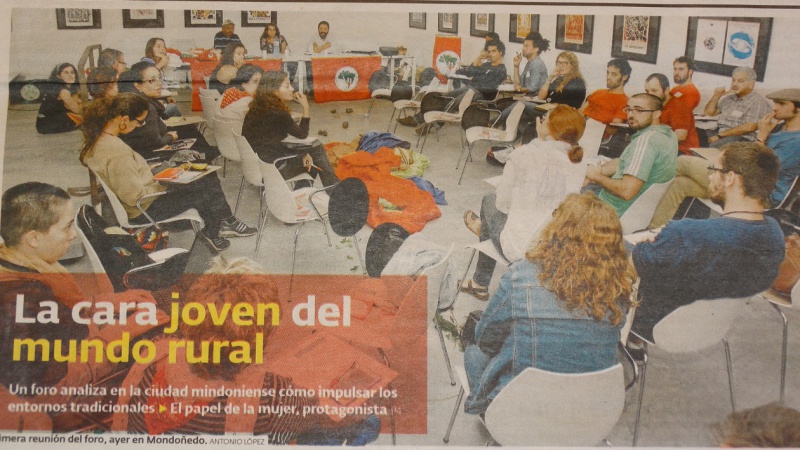 European Committees of Friends of the MST met from October 24 to 26, 2014 in Mondoñedo, Galicia, Spain. Representatives from FMST Committees of Germany, Portugal, Norway, Sweden, Belgium and Galicia, Basque Country and Catalonia in Spain met for their bi-annual meeting. Sending their regards, but unable to attend, were the committees from Italy and Finland.
European Committees of Friends of the MST met from October 24 to 26, 2014 in Mondoñedo, Galicia, Spain. Representatives from FMST Committees of Germany, Portugal, Norway, Sweden, Belgium and Galicia, Basque Country and Catalonia in Spain met for their bi-annual meeting. Sending their regards, but unable to attend, were the committees from Italy and Finland.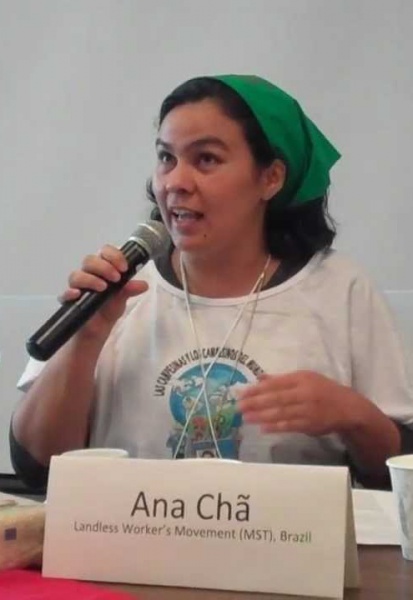 Ana Chã, a member of the MST’s Culture Collective, gave two presentations on the role of culture in social movements, particularly the MST. On August 11, 2014, in the Bay Area, she addressed cultural workers at Occupy the Farm in Albany, CA.
Ana Chã, a member of the MST’s Culture Collective, gave two presentations on the role of culture in social movements, particularly the MST. On August 11, 2014, in the Bay Area, she addressed cultural workers at Occupy the Farm in Albany, CA.